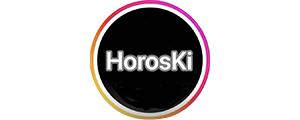Email format error
Email cannot be empty
Email already exists
6-20 characters(letters plus numbers only)
The password is inconsistent
Email format error
Email cannot be empty
Email does not exist
6-20 characters(letters plus numbers only)
The password is inconsistent

Market Information
Focus on market dynamics, grasp the pulse of the trend

How to Choose the Right Women’s Clothing Wholesale Supplier for Your Business
Selecting a trustworthy women’s clothing wholesale supplier can make all the difference between profit and loss for your retail venture or e-commerce store. Whether you are just starting or expanding, vetting suppliers ensures you get the right quality, price, and style, especially if your target market includes Africa. In this blog, we look at several key considerations to guide you through this selection process.
1. Know Your Target Market
Before you decide which women’s clothing wholesale supplier to partner with, it is crucial to understand your audience. Are you selling to consumers in Africa or reaching out to international buyers? Different regions may have particular style preferences, climatic needs, or cultural norms. For instance, some markets may favor bright and bold prints, while others lean toward minimalist designs and neutral hues. By thoroughly researching your target market, you can decide which product range best suits your customers’ desires.
2. Evaluate the Supplier’s Product Range
A key step in vetting suppliers is taking a good look at their product range. This is where you need to pay attention to variety, quality, and design. For women’s clothing, the best suppliers often offer:
- Knitted dresses: Perfect for year-round style and comfort
- Tops and knitted suits: A must-have in any modern wardrobe
- Skirts: From casual to formal, a wide selection ensures you can target diverse audiences
- Ethnic wear: A strong choice if you are appealing to cultural attire preferences
If your wholesale partner cannot meet the style demands or lacks the range you need, you risk not capturing the market segment you are aiming for.
3. Assess the Manufacturing Capacity
To maintain consistent inventory and timely deliveries, it is important to ensure that your chosen supplier has adequate manufacturing capacity. An established supplier should ideally have experience in producing large volumes while maintaining quality control. For example, Guangzhou Tuturn Clothing.CO.,Ltd operates two extensive garment manufacturing factories spanning 20,000 square meters in Guangzhou, a well-known garment hub. Their large-scale production allows them to respond effectively to high-order demands while keeping quality standards intact.
4. Check Communication and Reliability
Strong and transparent communication can reduce delays, prevent misunderstandings, and maintain smooth operations. Ensure the supplier offers clear channels—whether email, phone, or online messaging—for updates on orders, shipping, and product details. You also want to confirm their reliability; do they adhere to a stable production schedule? A reliable women’s clothing wholesale supplier typically has consistent lead times (for instance, an average delivery time of 14 days) and offers robust customer service for prompt issue resolution.
5. Consider Pricing and Payment Terms
Pricing must strike a balance between affordability for your customers and profitability for your business. Some suppliers may offer bulk discounts or various payment terms. Look for flexible options that protect your interests, such as partial payments at order confirmation and the rest upon shipment. However, cheaper is not always better; extremely low prices can signal inferior materials or poor workmanship. For this reason, always weigh cost against product quality before finalizing a deal.
6. Think About the Supplier’s Market Expertise
If you are focused on Africa as a primary market, look for suppliers familiar with that region’s style and logistical needs. Guangzhou Tuturn Clothing.CO.,Ltd, established in 2004, has extensive experience supplying garments worldwide and focuses significantly on Africa. By choosing suppliers with a proven track record in your target region, you dramatically reduce the risk of shipping complications, cultural mismatches in design, and other challenges that might impede smooth market entry.
Conclusion
Finding the right women’s clothing wholesale supplier can help your business thrive. Keep in mind the importance of assessing the supplier’s product range, manufacturing capacity, communication, pricing, and market expertise. Through thorough vetting of suppliers, you’ll ensure high-quality products, timely deliveries, and better satisfaction for your own customers.
Guangzhou Horiski womenswear is an international enterprise operating as a production manufacturer since 2004. With 101–200 employees and two garment manufacturing factories covering 20,000 square meters, we specialize in all kinds of women’s knitted dresses, tops, knitted suits, skirts, and ethnic wear. Our main market is Africa, and our average delivery time is 14 days. For inquiries, contact us at 008618620213178 or via email at wucaiding382@gmail.com.

